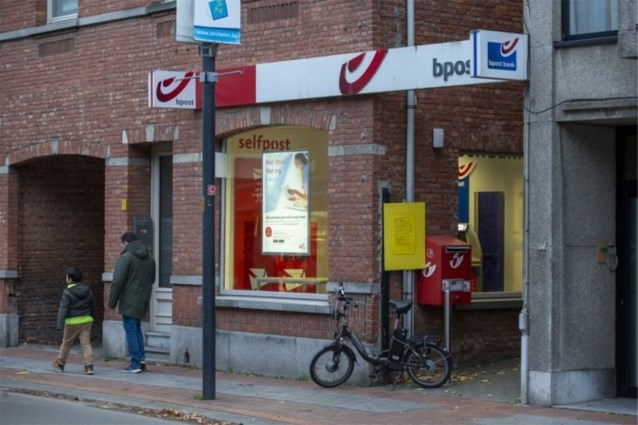State-owned postal company Bpost has reached an agreement with the government to keep all post offices open until 2026, however unprofitable they are.
The new agreement is a scheduled renegotiation of Bpost’s management agreement, this time for the period 2022 to 2026. The question of post offices closures was central to the talks.
As a result, Bpost is pledged to keep its existing 650 post offices open until the next management agreement is discussed in 2026. A majority of those are unprofitable, but that will not be allowed to be a reason for closure. In return, Bpost will receive €16 million in additional funding.
In recent years, the number of fully-operational post offices has dwindled across the country, their various services being farmed out to shops who now take in packages to be picked up by recipients themselves instead of being delivered.
Postal deliveries, at the same, are being reduced, although Bpost retains the lucrative contract to deliver newspapers and magazine, for which it receives a government subsidy.
“If Bpost looked at its branch network from a purely economic point of view, it would probably close half of the branches,” said Petra De Sutter (Groen), minister for public enterprises. “But the offices are valuable because they fulfil a social function.”
Bpost already performs one important social function: delivering pensions to elderly people at home, to save them from having to visit the post office and run the risk of being robbed on the way home.
The government would like to see more social engagement. One example: post offices will be obliged to install a cash machine in municipalities which are no longer provided for by the classic banks – 14 according to a survey done in April, mainly in Wallonia.
Banks, meanwhile, have been closing and removing their own cash machines after a spate of robberies where criminals either blow up the machine to get at the cash, or use a JCB to take the machine out of the wall to be opened at leisure.
“We want everyone to be able to withdraw money close to home, also in rural areas,” said De Sutter. “Thanks to its post office network, Bpost is the ideal partner for this. Although Bpost is also allowed to place the machines outside its offices.”
Another social role will be to help people with little digital know-how to perform tasks like access the online tax service Tax-on-Web, as well as the government mailbox eBox.
According to the King Baudouin Foundation, some 40% of the population is not fully digitally literate, at a time when more and more official communications are delivered digitally.
In a test phase lasting 36 months, Bpost will transform 65 of its post offices into what De Sutter called ‘digital hubs’.

